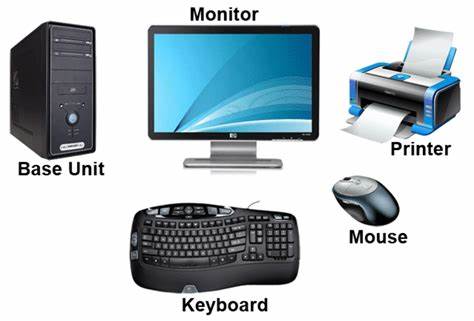
Basic computer course in rewa
Understanding the Basics of Computers
In today’s digital age, computers are an essential part of everyday life. Whether for personal use, education, or work, understanding the basics of computers can greatly enhance your ability to navigate the modern world. This article will introduce you to the fundamental components and functions of computers.
What is a Computer?
A computer is an electronic device that processes data according to a set of instructions called a program. It can perform a wide variety of tasks, from simple calculations to complex simulations. At its core, a computer consists of hardware and software.
Hardware Components
- Central Processing Unit (CPU): Often referred to as the brain of the computer, the CPU performs calculations and executes instructions. It is responsible for processing data and controlling other components.
- Memory (RAM): Random Access Memory (RAM) is the computer’s short-term memory. It temporarily stores data that the CPU needs to access quickly. More RAM allows for smoother multitasking and faster performance.
- Storage: Computers use storage devices to save data permanently. The most common types are Hard Disk Drives (HDDs) and Solid State Drives (SSDs). SSDs are faster and more reliable than HDDs.
- Motherboard: The motherboard is the main circuit board that connects all the components of the computer. It allows the CPU, memory, and other hardware to communicate with each other.
- Power Supply Unit (PSU): The PSU converts electricity from an outlet into a usable form for the computer. It provides power to all the internal components.
- Input Devices: These are devices used to interact with the computer, such as keyboards, mice, and scanners.
- Output Devices: These are devices that the computer uses to communicate information to the user, such as monitors, printers, and speakers.
Software Components
- Operating System (OS): The OS is the software that manages the computer’s hardware and provides a user interface. Popular operating systems include Windows, macOS, and Linux.
- Applications: These are software programs designed to perform specific tasks. Examples include web browsers, word processors, and games.
- Drivers: Drivers are special programs that allow the operating system to communicate with hardware devices.
Basic Computer Functions
- Booting Up: This is the process of starting the computer. When you press the power button, the computer runs a series of checks and loads the operating system.
- Running Programs: Once the computer is on, you can open and use various software applications to perform tasks like browsing the internet, writing documents, or editing photos.
- Saving and Retrieving Data: You can store files on your computer’s storage devices and retrieve them when needed. It’s important to organize your files in folders for easy access.
- Connecting to the Internet: Most computers have built-in network adapters that allow you to connect to the internet via Wi-Fi or Ethernet. This connection lets you access online resources, communicate with others, and download content.
- Maintaining Security: To keep your computer safe from malware and unauthorized access, it’s crucial to use antivirus software, enable firewalls, and regularly update your operating system and applications.
Tips for Beginners
- Learn Keyboard Shortcuts: Keyboard shortcuts can save you time and make using your computer more efficient. For example, Ctrl+C copies text, and Ctrl+V pastes it.
- Stay Organized: Keep your files and folders organized to easily find what you need. Use descriptive names and categorize related items together.
- Backup Your Data: Regularly back up important files to an external drive or cloud storage to prevent data loss in case of hardware failure.
- Practice Regular Maintenance: Keep your computer running smoothly by performing regular maintenance tasks like disk cleanup, software updates, and virus scans.
- Seek Help When Needed: Don’t hesitate to ask for help or look up tutorials if you’re unsure how to do something. There are many online resources available to help you learn.
Conclusion
Understanding the basics of computers is essential in today’s digital world. By familiarizing yourself with the main components, functions, and best practices, you can make the most of your computer and enhance your productivity. Whether you’re a complete beginner or looking to refresh your knowledge, this foundational understanding will serve you well in various aspects of life.
Visit site- https://www.ntitechacademy.com